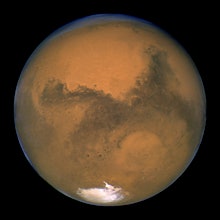These 3.5 billion-year-old rocks in Australia could help NASA discover life on Mars

Scientists found rocks that might be able to help with a scientific treasure hunt for life on Mars.
The 3.48-billion-year-old rocks — hot spring deposits — were originally collected from Pilbara Craton in Western Australia, and they contain microbial biosignatures that serve as clues for early life on Earth in the presence of hot springs.
This adds to a theory that life on Earth came from freshwater hot springs, not hydrothermal (heated) vents under the sea.
"The discovery of potential biological signatures in these ancient hot springs in Western Australia provides a geological perspective that may lend weight to a land-based origin of life," Tara Djokic, part of the study and a scientist at University of New South Wales, told Business Insider.
The rocks are a huge feat for documenting history: The new discovery extends our record of known life in Earth's inhabited hot springs by 3 billion years, according to the study.
And as NASA scientists search for a place to land its rover on a 2020 mission, authors of the study suggest that they might want to consider a hot-spring-like region on Mars.
"If you're going to look for life on Mars, we know it was preserved on hot springs here on the ancient earth," Djokic told NPR. "So there's a good chance if it ever developed on Mars, then it would probably be preserved in hot springs there, too."